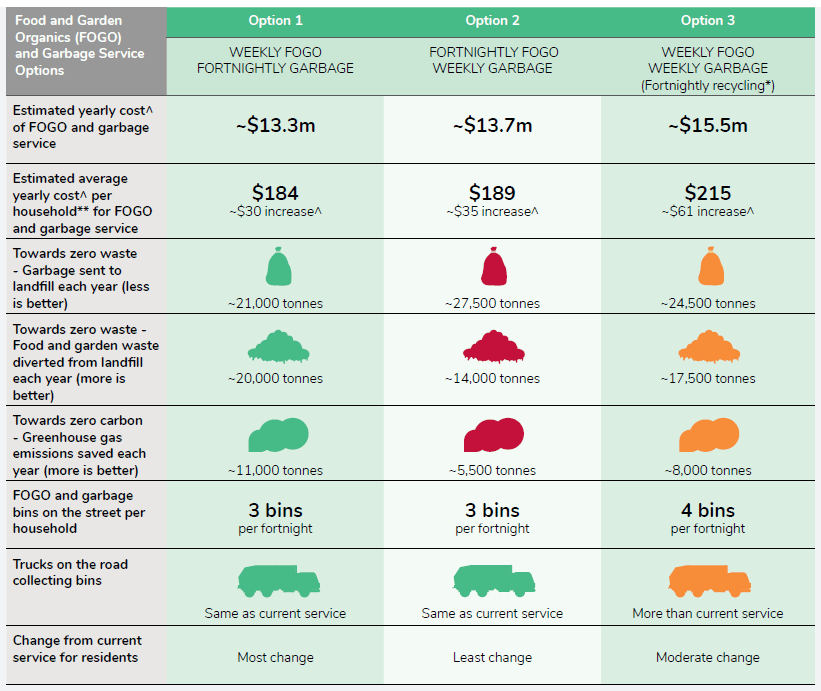News / Council
What a load of rubbish
Council mulls shakeup of garbage collection and recycling policies

Mark Phillips
Wednesday, March 3, 2021
WEEKLY garbage collections could become fortnightly and be replaced by enhanced green waste pickups under a radical shakeup of rubbish collection being considered by Moreland Council.
The changes — which are partly being forced by the state government upon all councils — would also see a greater emphasis on recycling with a corresponding decrease in garbage going to landfill.
Paper, plastic and glass recycling, currently all bundled in the one bin and collected every week, would be split into two bins. And the fortnightly green waste collection, which last year added compostable food waste, would become weekly.
The changes are outlined in public consultation currently underway and seeking resident and ratepayer feedback.
The council is committed to introducing the mandated four bins in mid-2022, but has not yet decided on how regularly each type of waste will be collected. Some councils are more advanced down the path towards four bins than Moreland and have already begun using them.
The public consultation closes on March 14, with the council expecting to decide on the final policy in the final quarter of this year.
But a discussion kit on the council website clearly favours reducing landfill garbage collection as both the most cost-effective and environmentally friendly option.
The four bins will be made up of:
• garbage (red lid)
• recycling (yellow lid)
• food and garden organics (FOGO) (light green lid)
• glass (purple lid)
Currently, most households are provided with an 80 litre rubbish bin, which is collected weekly, and a 120 litre green waste bin, collected fortnightly. Since 2020, compostable food waste, including bones and meat, have been allowed to be put in the green waste bin.

Of the three options being considered by the council, the cheapest and most environmentally friendly is for the FOGO bin to remain at 120 litres but be collected weekly, while the standard rubbish bin would increase to 120 litres but only be collected fortnightly.
According to council modelling, this would be delivered at an average annual cost of $184 per household, an increase of $30 on current costs, while resulting in 21,000 tonnes being sent to landfill by Moreland each year and saving 11,000 tonnes of greenhouse gases.
By contrast, continuing with the current practice of weekly landfill collections and increasing FOGO collections to weekly also would cost the average household an extra $61 a year while sending 24,500 tonnes to landfill and saving just 8000 tonnes of greenhouse gases. It would also mean more trucks on the streets.
When it comes to glass and recycling collection, the cheapest and most environmentally sound option is to double the standard recycling bin to 240 litres, but only collect it fortnightly instead of weekly, while introducing a 120 litre glass bin that would be picked up once a month.
This would cost an average of $122 a year (a $2 increase), compared to a cost of $151 ($30 more) for the other option of continuing to collect the 120 litre recycling bin every week and glass once a month.

But the second option would see an increase in the frequency of garbage trucks on Brunswick’s tight residential streets. It would also not be possible if FOGO was collected every week.
Both options would result in the same 17,000 tonnes of recycling material being collected from Moreland each year.
Regardless of what option is chosen, most houses are going to have to find space for an extra rubbish bin, which may be a burden for small residential properties.
The council is seeking feedback on not only the size of bins and how often they will be picked up but also a range of other issues including hard waste collections and services delivered to schools, businesses and other non-residential properties.
On the hard waste front, the twice-yearly collections on fixed dates could be replaced with more flexible collections which could be booked by residents.
